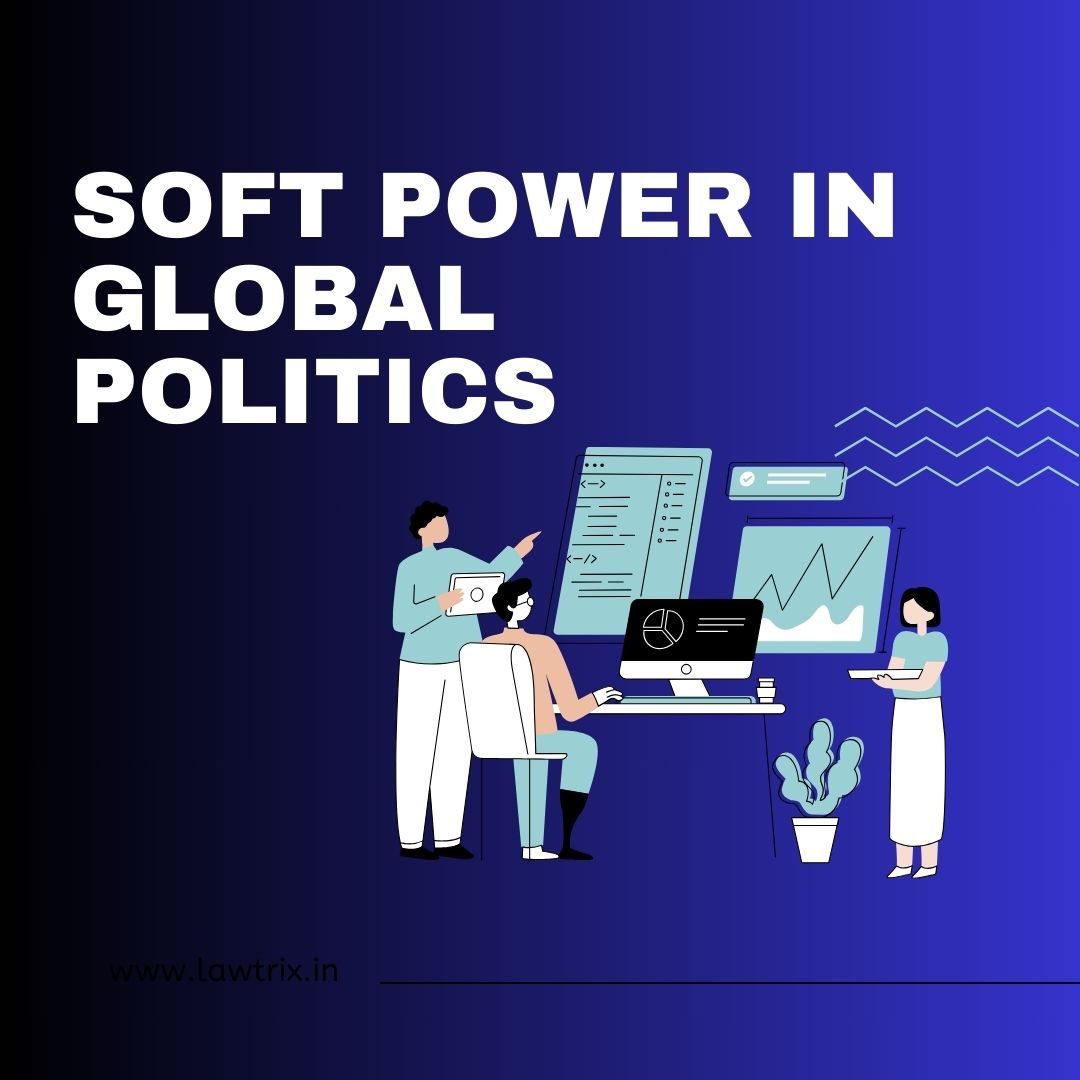


SOFT POWER
is the ability of a country to influence others through non-coercive means,
such as culture, values, policies, and institutions, rather than through
military or economic coercion. Soft power is based on attraction and persuasion
rather than coercion or payment, and it rests on a country's ability to shape
the preferences and behavior of others through intangible assets.
Soft
power contrasts with "hard power" - the use of coercion and payment.
Soft power can be wielded not just by states but also by all actors in
international politics, such as NGOs or international institutions. It is also
considered by some an example of the "second face of power" that
indirectly allows one to obtain the outcomes one wants. A country's soft power
majorly rests on three resources that is its culture (in places where it is
attractive to others), its political values (when it lives up to them at home
and abroad), and its foreign policies (when others see them as legitimate and
having moral authority).
Here are some key
aspects of soft power:
Culture and Ideals:
Soft power is often derived from a country's cultural exports, such as music,
films, literature, art, cuisine, and fashion. Countries with vibrant cultural
industries and influential cultural icons can project their values, norms, and
ideals onto the global stage, attracting admiration and fostering affinity among
foreign audiences.
Political Values and
Ideals: Soft power can also stem from a country's political
values, institutions, and democratic principles. Countries that uphold human
rights, rule of law, freedom of speech, and democratic governance can inspire
others and serve as models for emulation, thereby exerting influence on the
international stage.
Foreign Policy and
Diplomacy: Soft power is closely linked to a country's foreign
policy and diplomatic initiatives. Diplomatic efforts to promote peace, resolve
conflicts, provide humanitarian aid, and contribute to global development can
enhance a country's reputation and credibility, earning goodwill and support
from the international community.
Education and Exchange
Programs: Soft power can be cultivated through educational
and exchange programs that facilitate people-to-people connections, cultural
exchange, and academic collaboration. Student exchanges, scholarships, and cultural
immersion programs enable individuals to experience a country's values,
traditions, and way of life firsthand, fostering mutual understanding and building
long-term relationships.
Global Institutions and
Leadership: Soft power can be bolstered by a country's
leadership and participation in international institutions, such as the United
Nations, World Bank, and International Monetary Fund. By contributing to global
governance, providing humanitarian assistance, and promoting sustainable
development, countries can enhance their influence and reputation in the
international community.
Information and Media
Influence: Soft power is influenced by a country's ability to
shape narratives, perceptions, and public opinion through media, information,
and communication channels. Countries that have a strong media presence,
effective public diplomacy strategies, and positive international coverage can
project their image and values to global audiences, shaping their perceptions
and attitudes.
Technology and
Innovation: Soft power can be enhanced through a country's
advancements in technology, innovation, and scientific research. Technological
leadership in areas such as information technology, renewable energy, space
exploration, and healthcare can enhance a country's reputation as a global
leader and attract admiration from other nations.
Development Assistance:
Soft power can be wielded through development assistance and foreign aid
programs aimed at promoting economic growth, poverty reduction, and sustainable
development in recipient countries. Providing humanitarian aid, infrastructure
development, and capacity-building support can foster goodwill and strengthen
diplomatic ties with partner nations.
Crisis Response and
Humanitarian Assistance: Soft power can be demonstrated
through a country's swift and effective response to humanitarian crises,
natural disasters, and emergencies. Providing timely assistance, disaster
relief, and humanitarian aid to affected populations can showcase a country's
compassion, generosity, and leadership on the global stage.
Sports and Sporting
Events: Soft power can be projected through sports
diplomacy and the hosting of international sporting events. Hosting events such
as the Olympic Games, FIFA World Cup, or major championships can showcase a
country's culture, hospitality, and organizational capabilities, while
promoting international cooperation and goodwill through sports.
Cultural Diplomacy
Initiatives: Soft power can be cultivated through
cultural diplomacy initiatives that promote cultural exchange, dialogue, and
understanding between nations. Cultural exchanges, arts festivals, language
programs, and exhibitions can showcase a country's cultural heritage,
creativity, and diversity, fostering mutual respect and appreciation among
diverse cultures.
Environmental
Stewardship: Soft power can be derived from a
country's commitment to environmental stewardship, sustainability, and climate
action. Taking proactive measures to address environmental challenges, reduce
carbon emissions, and preserve natural resources can enhance a country's
reputation as a responsible global citizen and leader in environmental
protection.
Soft Power Projection
Strategies: Countries often employ various
strategies to project their soft power and enhance their global influence.
These may include public diplomacy campaigns, cultural initiatives, educational
exchange programs, strategic communications, and partnerships with influential
institutions and individuals.
Soft Power Challenges:
While soft power can be a valuable asset in international relations, countries
may face challenges in effectively projecting their soft power and managing
their image abroad. These challenges may include cultural misunderstandings,
backlash against perceived cultural imperialism, misinformation campaigns, and
negative stereotypes.
Soft Power and National
Branding: Soft power is closely linked to a country's
national brand and reputation on the global stage. Building a positive national
brand through effective soft power projection can enhance a country's
competitiveness, attract investment, tourism, and talent, and contribute to its
overall prosperity and influence in the international community.